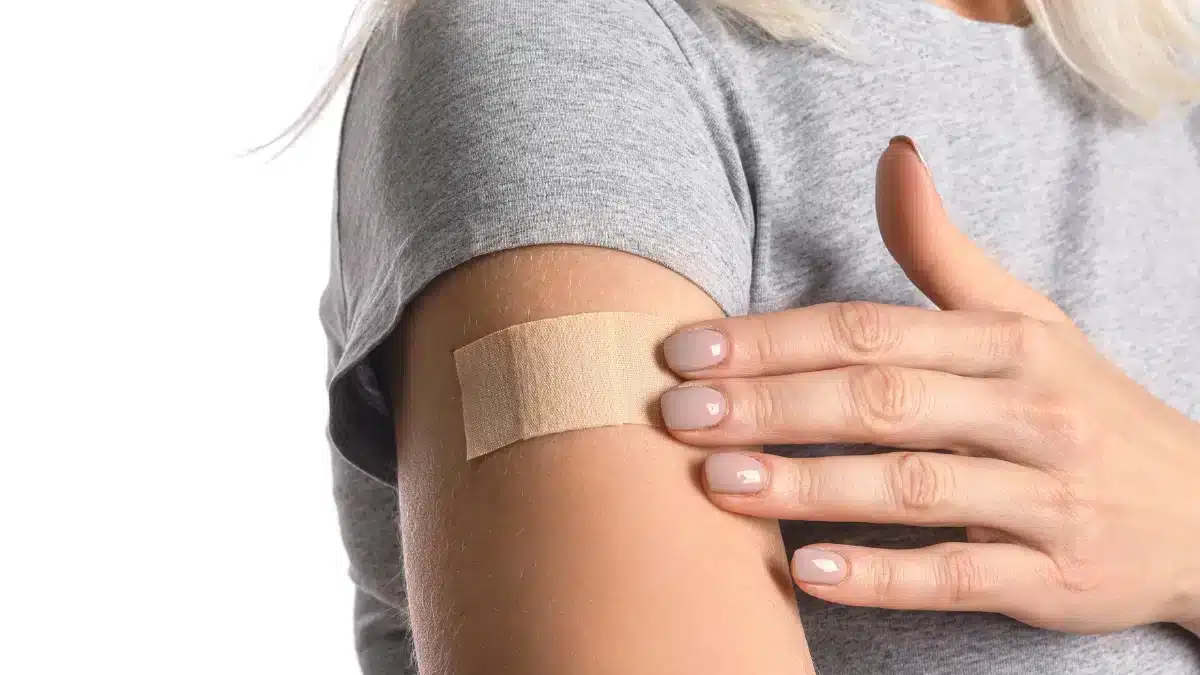The Power of Choice: Exploring Menopause Medication for a Smooth Transition
As women navigate the unique journey of Menopause, the significance of Menopause medications cannot be underestimated.
These medications are vital in helping women manage and lessen the symptoms that may accompany this transition.
Menopause medications come in various forms, from hormonal therapies to non-hormonal choices.
Understanding available medications and their unique benefits empowers women to make informed decisions.
To know more about Menopause pills, continue reading.
Hormone replacement therapy
Hormone replacement therapy (HRT) is the primary Menopause medication for symptoms during Menopause, and Perimenopause is hormone replacement therapy (HRT).
HRT involves supplementing the body with natural hormones that it no longer produces after Menopause.
Hormone therapy consists of an Estrogen/Progestin combination.
Estrogen helps relieve symptoms like hot flashes, vaginal dryness, and Osteoporosis.
Progestin is added to reduce the risk of endometrial cancer associated with estrogen use.
However, Hormone therapy can have side effects such as irregular bleeding, headaches, bloating, breast swelling, and pain.
Vaginal Estrogen
Vaginal Estrogen therapy relieves vaginal dryness, discomfort during intercourse, and some urinary symptoms.
It involves administering a small amount of Estrogen directly to the vagina using creams, tablets, or rings.
This localized treatment helps improve vaginal health without exposing the entire body to Estrogen.
Side effects are minimal but can include breast pain, nausea, and headache.
Low-Dose Antidepressants

Certain low-dose antidepressants, particularly Selective Serotonin Reuptake Inhibitors (SSRIs), have effectively reduced menopausal hot flashes.
This option benefits women who cannot take Estrogen for health reasons or require an antidepressant for mood disorders.
Side effects may include dry mouth, nausea, restlessness, and insomnia.
Gabapentin
Gabapentin, primarily used for seizures, has also been found to reduce hot flashes in menopausal women.
It can be an alternative for those who cannot use Estrogen therapy or experience nighttime hot flashes.
Side effects may include dizziness, drowsiness, nausea, vomiting, and diarrhea.
Clonidine
Clonidine, typically prescribed for high blood pressure, may offer some relief from hot flashes.
A study tested the effectiveness of Clonidine in reducing hot flashes in postmenopausal women.
After taking different doses of Clonidine for two weeks, it was found that Clonidine significantly reduced the frequency of hot flashes compared to a placebo.
It can be taken as a pill or applied as a patch.
Adverse effects may include dry mouth, drowsiness, and low blood pressure.
Fezolinetant
The FDA has approved Fezolinetant for treating moderate to severe hot flashes experienced during Menopause.
This hormone-free medication offers an alternative option for managing menopausal symptoms.
Fezolinetant functions by blocking a brain pathway responsible for regulating body temperature.
While it shows potential, further research is required to assess its long-term efficacy and possible side effects.
Medications for Osteoporosis Prevention and Treatment
Menopause increases the risk of Osteoporosis.
Doctors may prescribe medications for preventing or treating Osteoporosis based on individual needs.
These Menopause medications, like Bisphosphonates, effectively reduce bone loss and minimize the risk of fractures.
Supplements like Calcium and vitamin D may also be prescribed to strengthen bones.
Alternative and Lifestyle Approaches
In addition to medications, alternative and lifestyle approaches can help manage Menopause symptoms:
Phytoestrogens
Phytoestrogens, such as soybeans, lentils, and flaxseed, may offer some relief from hot flashes.
However, their effectiveness still needs investigation and may only be suitable for some.
Black Cohosh

Black Cohosh, a herbal supplement, has been traditionally used to decrease Menopause symptoms.
However, concerns about its safety and potential effects on liver health exist.
It is important to discuss its use with a healthcare provider.
Regular Exercise
Regular physical activity, including weight-bearing exercises, helps maintain bone health and overall well-being.
Exercise also helps manage Menopause symptoms, including psychological, somatic, vasomotor, and sexual symptoms.
Stress Management
During Menopause, managing stress is essential for overall well-being.
Meditation, yoga, deep breathing, and relaxation exercises can reduce stress and improve mood.
Takeaway
Hormone replacement therapy (HRT) is a very common treatment for Menopause symptoms.
It involves replacing the hormones that the body stops producing after Menopause.
HRT can help with hot flashes, vaginal dryness, and Osteoporosis but may have side effects and long-term risks.
Menopause medications like low-dose antidepressants, Gabapentin, Clonidine, and Fezolinetant can also be used.
Lifestyle approaches like exercise and stress management techniques are essential for managing Menopause symptoms.
Discussing these options with a healthcare provider to find the best approach for individual needs is essential.
Frequently Asked Questions
What is the best medication for Menopause?
The best medication for Menopause varies for each person. Hormone replacement therapy treats symptoms like hot flashes and vaginal dryness. Some women may benefit from other Menopause medications like low-dose antidepressants or Gabapentin. Talking to a doctor to find the proper treatment for you is essential.
What medications do doctors prescribe for Menopause?
Doctors may prescribe HRT to treat Menopause symptoms. This involves replacing the hormones that the body no longer produces. Menopause medications like low-dose antidepressants, Gabapentin, Clonidine, and Fezolinetant can also be used. It’s important to discuss these options with a healthcare provider.
What is the new Menopause drug in 2023?
A new Menopause drug called Veozah has been approved to treat hot flashes experienced by up to 80% of menopausal women. It helps relieve uncomfortable symptoms, offering a new option for women seeking relief during this phase of life.
What is the best natural medication for Menopause?
Natural remedies like black cohosh, soy, and flaxseed may help lessen Menopause symptoms for some women. However, the effectiveness of these natural medications varies, and it’s essential to consult with a healthcare provider to determine the best approach for individual needs.
What is the safest medication for Menopause?
The safest medication for Menopause varies for each person and depends on individual health needs. Hormone replacement therapy (HRT) with the lowest effective dose may be safe for some women, but it’s essential to discuss all options with a healthcare provider to find the best and safest treatment plan.






